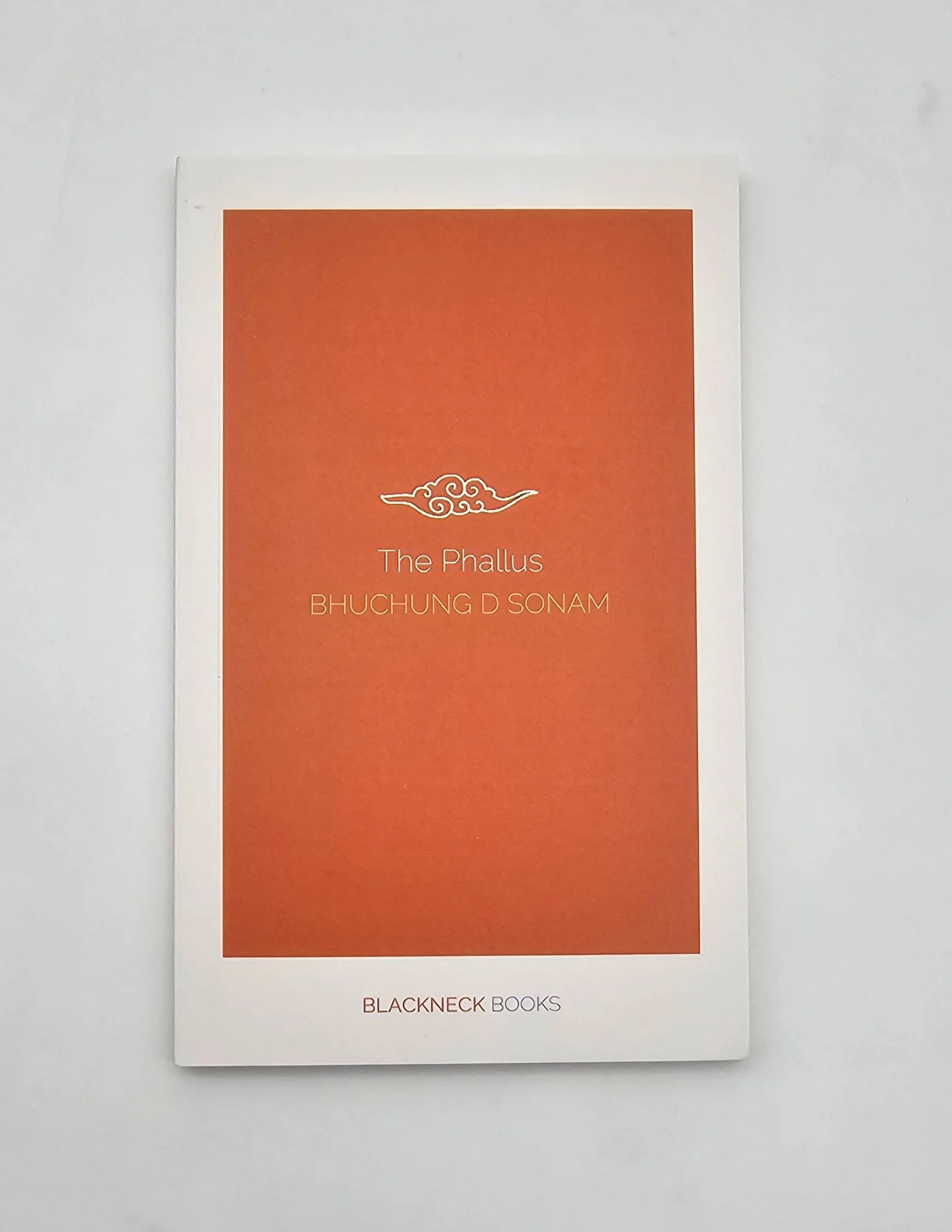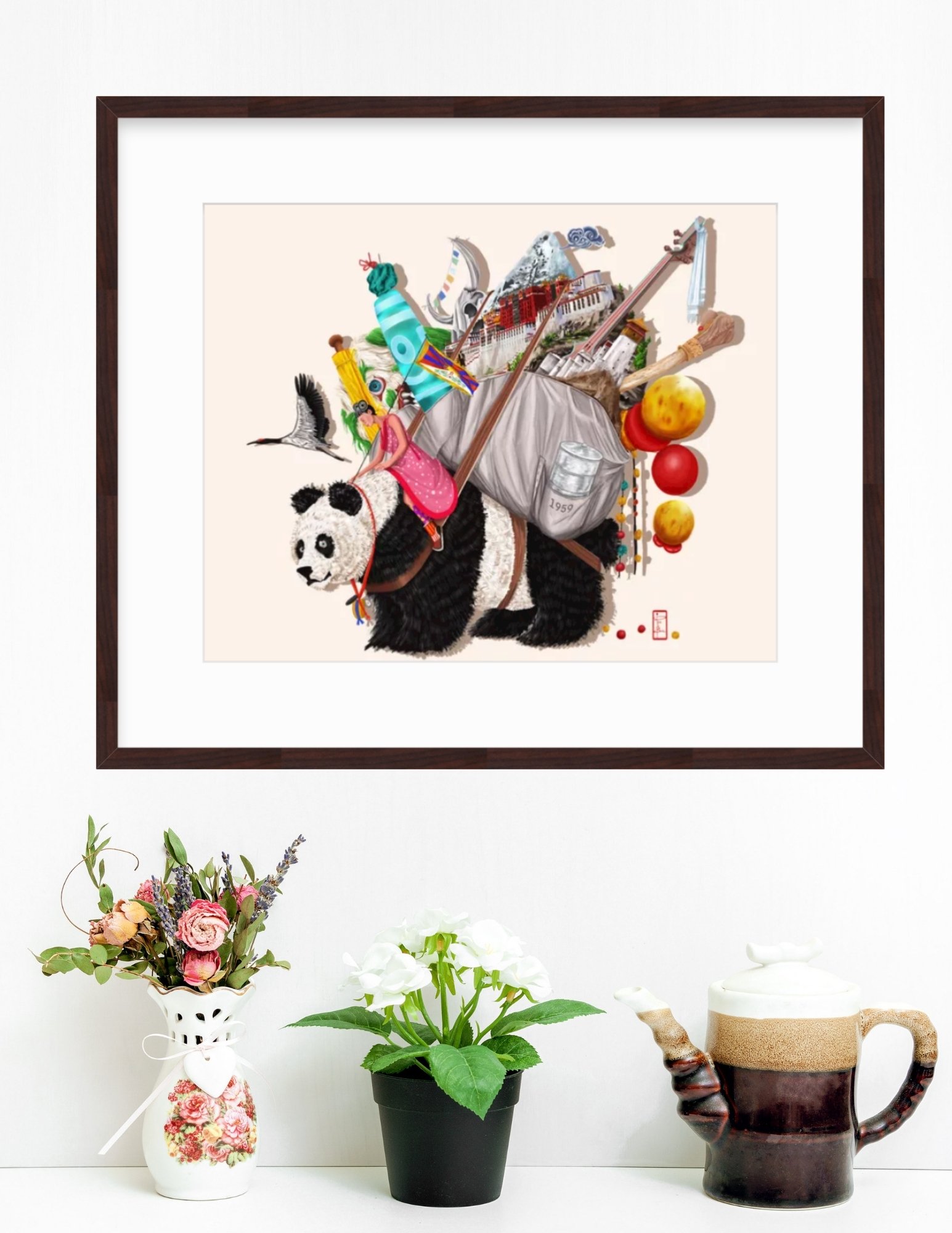 Image 1 of 3
Image 1 of 3

 Image 2 of 3
Image 2 of 3

 Image 3 of 3
Image 3 of 3




'The Phallus' by Bhuchung D Sonam | Blackneck Books
The Phallus is a hauntingly vivid collection of stories that confronts the brutal realities of survival, faith, and identity under oppressive regimes. In the title story, Sonam masterfully recounts the harrowing experiences of a Tibetan grandfather in a Chinese labor camp during the 1960s—a time when hunger, desperation, and the clash of beliefs defined existence.
Plot Overview of the Title Story
Stripped of freedom and dignity, the prisoners’ survival is a testament to human resilience. Reduced to foraging for worms from their waste and scavenging for sustenance, the discovery of a donkey’s carcass becomes a grim lifeline. Yet, even in the darkest moments, symbolism emerges—the uncooked, unyielding phallus of the donkey stands as a metaphor for the enduring struggles of faith and humanity.
In a desperate bid for release, the grandfather, a devout lama, faces an unbearable choice: renounce the teachings of Buddha and praise the Communist Party. His decision speaks to the moral and spiritual compromises demanded by survival, leaving readers to ponder the cost of oppression.
Why This Book Stands Out
Raw and Unflinching Narrative: Sonam’s storytelling pulls no punches, offering a gripping glimpse into the human condition during one of Tibet’s darkest eras.
Cultural and Historical Significance: The story sheds light on the struggles faced by Tibetans under Chinese rule, exploring themes of faith, betrayal, and survival.
Symbolism and Depth: The visceral imagery and poignant metaphors make this a thought-provoking read, encouraging reflection on resilience and morality.
Who Should Read This?
Perfect for readers who appreciate intense historical fiction, cultural narratives, and stories that reveal the depth of human strength and frailty.
The Phallus is not just a book—it’s a raw exploration of survival, spirituality, and the sacrifices made in the face of unimaginable adversity. Prepare to be moved, challenged, and forever changed.
About the Author
Bhuchung D. Sonam, originally from a small village in Tibet, became a refugee in India and later studied journalism in the U.S. His love for reading during his schooling at TCV inspired him to pursue creative writing, addressing the lack of Tibetan literary representation he once experienced. He authored Dandelions of Tibet and went on to publish the first anthology of English poems by a Tibetan, Muses in Exile, followed by Conflict of Duality. With a BA and MA in Economics, he began his career at Paljor Publications, translating Tibetan texts, and later studied print and multimedia journalism at Emerson College, Boston.
Paperback: 94 pages
The Phallus is a hauntingly vivid collection of stories that confronts the brutal realities of survival, faith, and identity under oppressive regimes. In the title story, Sonam masterfully recounts the harrowing experiences of a Tibetan grandfather in a Chinese labor camp during the 1960s—a time when hunger, desperation, and the clash of beliefs defined existence.
Plot Overview of the Title Story
Stripped of freedom and dignity, the prisoners’ survival is a testament to human resilience. Reduced to foraging for worms from their waste and scavenging for sustenance, the discovery of a donkey’s carcass becomes a grim lifeline. Yet, even in the darkest moments, symbolism emerges—the uncooked, unyielding phallus of the donkey stands as a metaphor for the enduring struggles of faith and humanity.
In a desperate bid for release, the grandfather, a devout lama, faces an unbearable choice: renounce the teachings of Buddha and praise the Communist Party. His decision speaks to the moral and spiritual compromises demanded by survival, leaving readers to ponder the cost of oppression.
Why This Book Stands Out
Raw and Unflinching Narrative: Sonam’s storytelling pulls no punches, offering a gripping glimpse into the human condition during one of Tibet’s darkest eras.
Cultural and Historical Significance: The story sheds light on the struggles faced by Tibetans under Chinese rule, exploring themes of faith, betrayal, and survival.
Symbolism and Depth: The visceral imagery and poignant metaphors make this a thought-provoking read, encouraging reflection on resilience and morality.
Who Should Read This?
Perfect for readers who appreciate intense historical fiction, cultural narratives, and stories that reveal the depth of human strength and frailty.
The Phallus is not just a book—it’s a raw exploration of survival, spirituality, and the sacrifices made in the face of unimaginable adversity. Prepare to be moved, challenged, and forever changed.
About the Author
Bhuchung D. Sonam, originally from a small village in Tibet, became a refugee in India and later studied journalism in the U.S. His love for reading during his schooling at TCV inspired him to pursue creative writing, addressing the lack of Tibetan literary representation he once experienced. He authored Dandelions of Tibet and went on to publish the first anthology of English poems by a Tibetan, Muses in Exile, followed by Conflict of Duality. With a BA and MA in Economics, he began his career at Paljor Publications, translating Tibetan texts, and later studied print and multimedia journalism at Emerson College, Boston.
Paperback: 94 pages
About Blackneck Books
Blackneck books is an imprint of TibetWrites, which is a Tibetan writers circle that promotes and publishes the creative work of Tibetans.





















